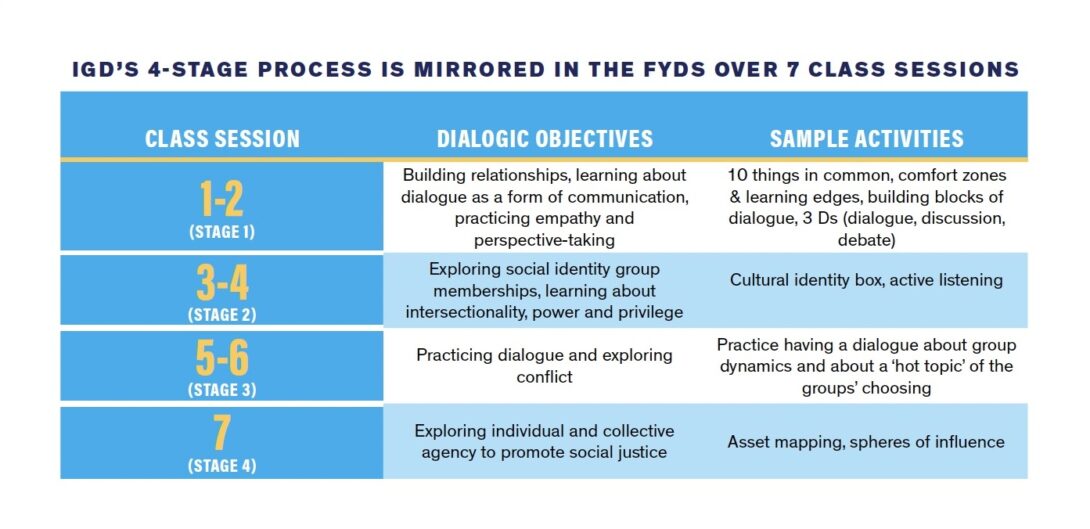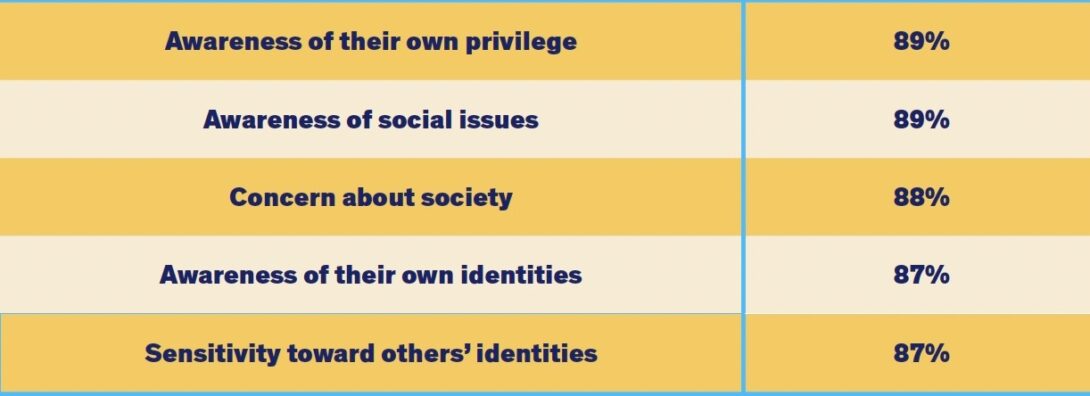About DLG 120
Course Objectives Heading link

While each section may differ in its focus and interests, each section of DLG 120 uses a process-centered curriculum to move students through the 4 stages of dialogue. Meeting for about 2 hours each week for half of a semester, students
- Learn about dialogue as a distinct form of communication and develop dialogue skills
- Learn about social group identity and multiple and intersectional identities
- Understand the role of social identity, power, and privilege in intra- and intergroup relations
- Practice empathy & perspective taking
- Critically analyze contemporary issues pertaining to social identity, power, and privilege.
- Learn to engage productively in diverse groups, and use knowledge about identity to address structural inequity and work towards social justice
Course Outcomes Heading link

Since 2012, the rigorous assessment of DLG 120 reveals students consistently show improvement in:
- Recognizing individual and structural forms of inequality,
- Confidence in discussing issues of diversity and social justice,
- Confidence in taking actions to combat inequality, and
- Knowledge of race and racism
Course Outcomes Heading link

In addition, the vast majority of DLG 120 students indicated the course increased their
- Awareness of their own privilege
- Awareness of social issues
- Concern about society
- Awareness of their own identities
- Sensitivity toward others’ identities